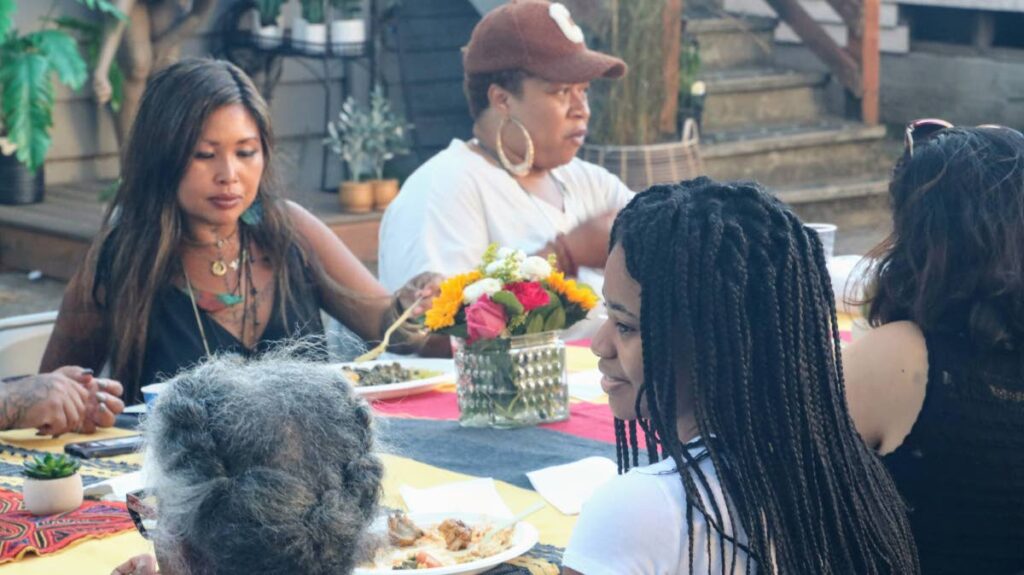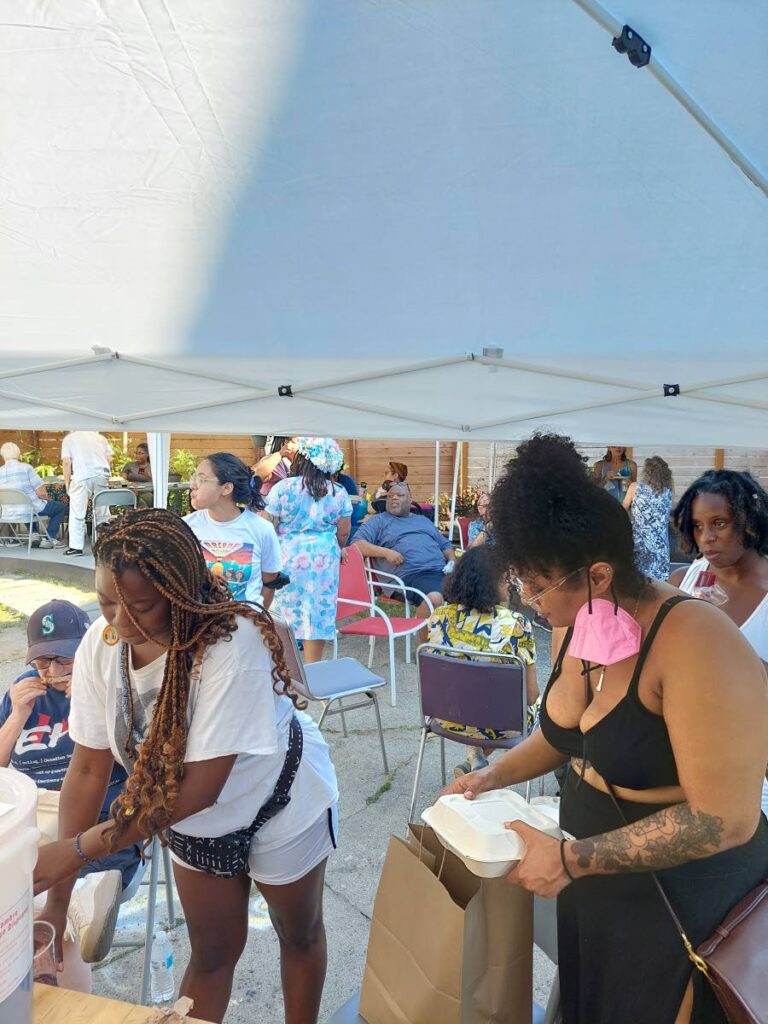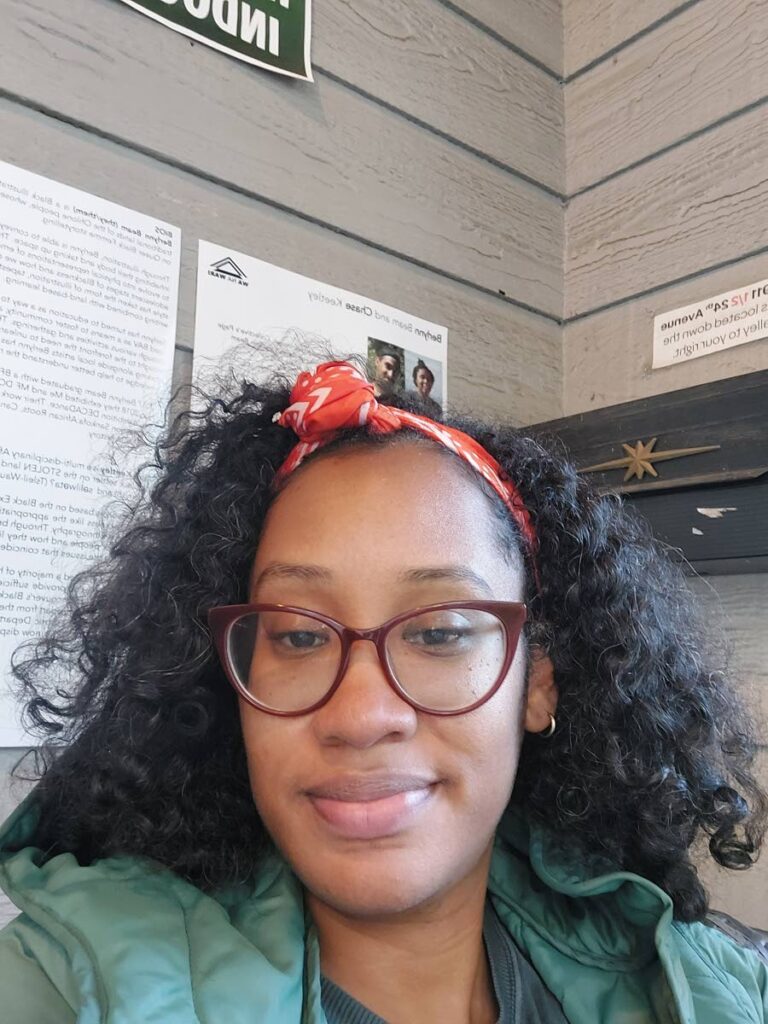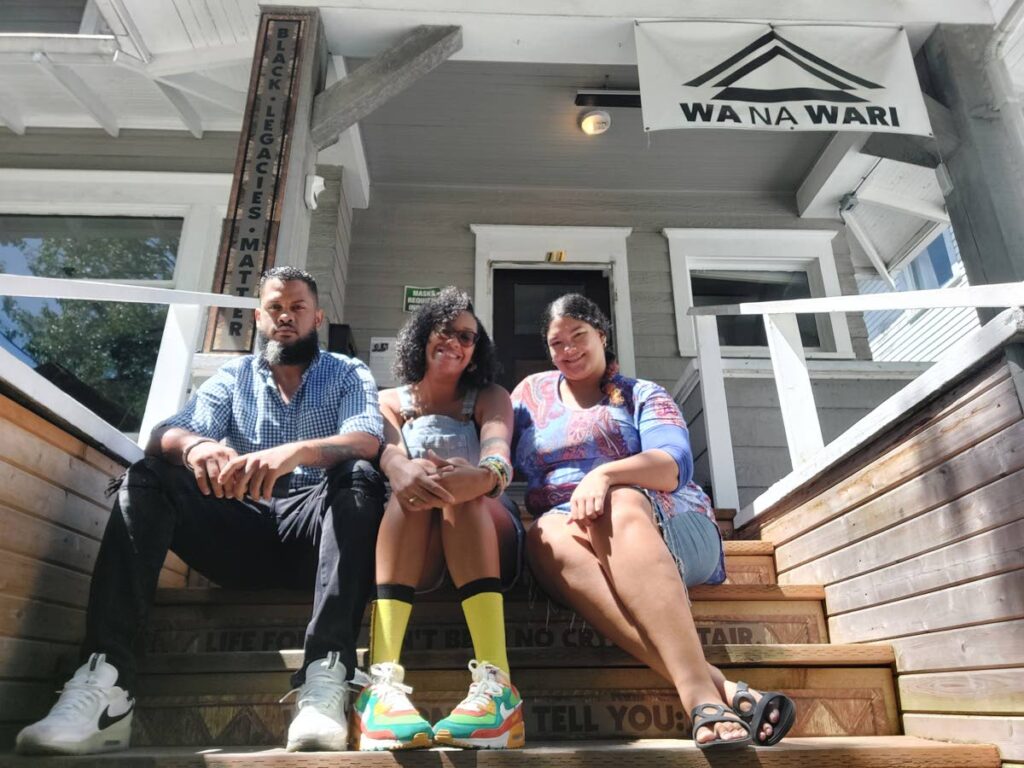Cousoumeh Collective, mixing cuisine and culture

When people think of art, they generally think of paintings and sculptures, poetry and even the culinary arts.
However, the founders of Cousoumeh Collective have ventured into socially engaged art where they use food as the medium to create safe spaces, promote gatherings, open discussions about cultural practices, art, engendering care for oneself and one's community.
Shanice Smith, who co-founded Cousoumeh with Barbadian Katherine Kennedy and Trinidadian Joshua Cabral, said their art is research-based across the Caribbean and the diaspora.
“This project is an art project, but not the stereotypical notions of what art often is considered to be, paintings and drawings. Our work falls under what is known as a social practice or social engagement practice.
“It is an art medium that focuses on engagement through social discussions, interactions, data collection and research. So for us, we've been using food as a medium to promote and foster safe spaces and promote not only a cultural exchange but lead guided discussions.”
The contemporary visual artist said each event is crafted around a theme, exploring what can be achieved by allowing creativity, thoughts and ideas the opportunity to “combine, ripen and reach maximum richness.” The sessions are then documented using pictures, videos, interviews and research.
According to the organisation’s website, cousoumeh is a creolised word of French and African origin which can be loosely defined as: to allow ingredients/food to simmer or marinate for an extended period of time.

The idea stemmed from her last two residences in the US in Vermont and New York in 2019.
“In Vermont, I felt really out of place. My group had the largest number of people of colour so we would meet and cook and share food. On my blog I did write ups on the experience.
“I always thought these things were normal but, according to the responses I got to it, it seems people just meeting and cooking and talking was not something usually done outside of the Caribbean. And it became an entire project on its own.”
Smith met Kennedy, a contemporary visual artist, writer, curator and cultural practitioner in 2016 at another residency for Caribbean artist. They wanted to continue collaborating and kept in touch.
Smith had previously worked with Cabral, a chef who owned a catering company and is a mental health technician and art enthusiast, and she asked if he would be interested in the project.
“In sharing Caribbean cuisine in these settings, where artists of multiple cultures and backgrounds gather, a different kind of understanding and dynamic was cultivated between the artists and community members.
“International residencies are full of creative energy but can still pose challenges around cultural disconnects or feelings of displacement, and through the pockets of safe spaces that communal cooking and eating allowed, the foundation for Cousoumeh Collective began to take root.”

Although the organisation began in 2019, the trio had to pause their operations because of the pandemic. As a result, their first session was in December 2021 at Art Basel Miami Beach, one of the largest art fairs in the US, with a group called Intelligent Mischief.
At the moment, they are working on a project with a gallery called Wa Na Wari which means "Our Home" in Kalabari (an Ijo language of Nigeria). The focus is on the shared history between TT, Barbados and the gallery, whose owners have Nigerian roots. Also, the preservation of space for black people as the population of the area was once about 90 per cent black, but is now about ten per cent.
“It’s an immersive community art project that reclaims black cultural space and makes a statement about the importance of black land ownership in gentrified communities. Our mission is to create space for black ownership, possibility, and belonging through art, historic preservation, and connection.
“It is our hope to continue engaging with this community we have connected with for a period of six to nine months, using food as the medium to explore different topics such as mental health, community, and knowledge transfer around Caribbean customs and cultural nuances.”
Smith said one of the owners found her blog where she viewed her writings, artwork and information on Cousoumeh, and requested that they do a session with the community.
They visited Seattle in August to do the collaboration where the menu was coocoo, callaloo and sorrel, which are familiar to Africans. The session turned into two sessions, three doubles-making workshops and a few cooking sessions, with the intention of doing more there in the near future.

She said operating in Seattle was very eye-opening. When they did the doubles-making workshops, the participants were very excited to be among other black people and to be learning cuisines from other cultures.
She said there were very few Caribbean people in that part of the US so many missed that connection and were lonely.
Trinidadian and Caribbean people started reaching out to them about the project as they wanted the sense of familiarity, home and comfort that they experience when West Indian culture is being celebrated and shared in an open and inviting way.
Smith told Sunday Newsday she has been working on a personal project using food as a medium to talk about trauma-related issues with women.
In fact, most of her work centres around domestic violence, and the objectification and commodification of women, with an emphasis on Caribbean women of colour.
She describes herself as an interdisciplinary artist as she does not use a set medium but creates videos, mixed-media pieces, installations, and more.
She completed her certificate qualifications in social work and psychology at the UWI Open Campus and a bachelor’s in Fine Art at UWI, St Augustine.
She stressed that she wants to separate her personal project from that of Cousoumeh. She did not want Cousoumeh’s work to feel heavy, especially coming out of the pandemic and lockdowns that a lot of people struggled with. Instead, the trio wanted to do something lighter involving community building, and that is what they got with Wa Na Wari.
He said for each session they produced a “zine,” a small-circulation self-published booklet, for those who attended, and they intend to compile them into a book for the public.


Comments
"Cousoumeh Collective, mixing cuisine and culture"